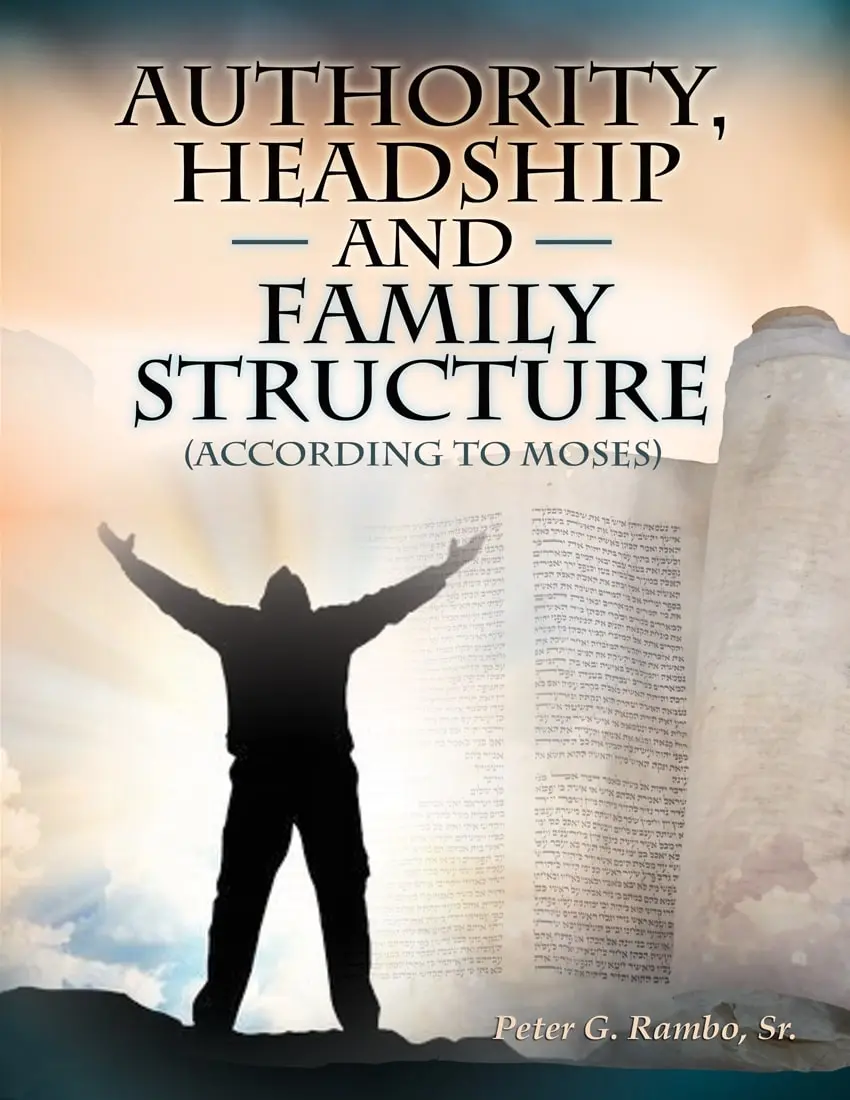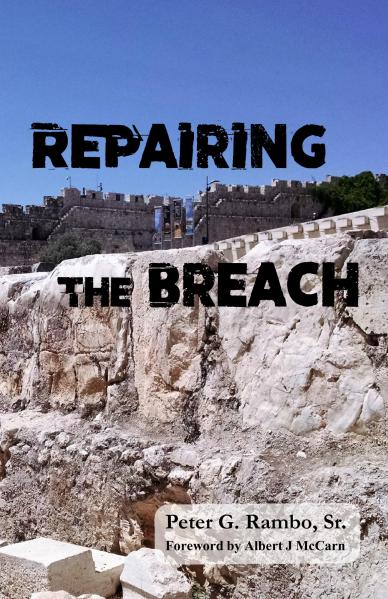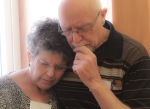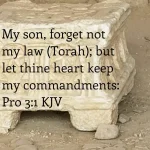 Yesterday was Shabbos Chanukah and if you check your Chumash or Torah reading cycle, you will find that the Haftarah was Zechariah 2:14 – 4:7. Certainly, because one of the main topics in Zechariah 4:2-14 is the giant menorah, this can be connected to Chanukah, but if we dig a little deeper, this Haftarah connects all of Scripture!!
Yesterday was Shabbos Chanukah and if you check your Chumash or Torah reading cycle, you will find that the Haftarah was Zechariah 2:14 – 4:7. Certainly, because one of the main topics in Zechariah 4:2-14 is the giant menorah, this can be connected to Chanukah, but if we dig a little deeper, this Haftarah connects all of Scripture!!
It is hard to know exactly where to begin pulling threads, so let’s just jump right in!
Last week’s Torah portion, Miketz, is part of my very favorite series of Portions, the Joseph Portions, about which I have written much. With multiple levels of understanding hidden in the life of Joseph, it is no surprise to find considerable prophecy and allusion to the Two Houses of Israel from the interplay of Judah and Joseph. While we will not delve into that in this post, I want to demonstrate from this Haftarah that the interplay was on display yesterday in every synagogue that read this, whether they recognized it or not.
Popular among Christians is trying to understand, or guess, who the two witnesses of Revelation 11 are. Al McCarn and I, in Ten Parts in the King: The Prophesied Reconciliation of God’s Two Witnesses that is now being printed, spend chapters collecting and connecting data points not just from Scripture but also Rabbinic and historic sources demonstrating not only the veracity of the Two House position, but explaining and examining God’s intent. One passage we touch on is this Zechariah passage.
Quoting from the soon to be released book,
It is interesting to note that in the closing chapter of the Christian Old Testament (Malachi is ordered differently in the Jewish Bible) we find the mention of both Moses and Elijah. In six very rich and decidedly eschatological verses we are instructed to:
Remember the law [Torah] of Moses My servant, even the statutes and ordinances which I commanded him in Horeb for all Israel.
Behold, I am going to send you Elijah the prophet before the coming of the great and terrible day of the Lord. He will restore the hearts of the fathers to their children and the hearts of the children to their fathers, so that I will not come and smite the land with a curse. (Malachi 4:4-6)
A common Christian interpretation is that these two, Moses and Elijah, are the two witnesses spoken of in Revelation 11. Notice, however, that John gives a couple of other details as to who the witnesses are, drawing from Zechariah:
“And I will grant authority to my two witnesses, and they will prophesy for twelve hundred and sixty days, clothed in sackcloth.” These are the two olive trees and the two lampstands that stand before the Lord of the earth. (Revelation 11:3-4, emphasis added)
Zechariah 4 has this to say:
He said to me, “What do you see?” And I said, “I see, and behold, a lampstand all of gold with its bowl on the top of it, and its seven lamps on it with seven spouts belonging to each of the lamps which are on the top of it; also two olive trees by it, one on the right side of the bowl and the other on its left side.”
Then I said to him, “What are these two olive trees on the right of the lampstand and on its left?” And I answered the second time and said to him, “What are the two olive branches which are beside the two golden pipes, which empty the golden oil from themselves?” So he answered me, saying, “Do you not know what these are?” And I said, “No, my lord.” Then he said, “These are the two anointed ones who are standing by the Lord of the whole earth.” (Zechariah 4:2-3, 11-14, emphasis added)
Note that “anointed ones” is literally translated, “sons of fresh oil,” a phrase pointing directly to the New Covenant. Note also that nowhere in scripture is an individual ever called an “olive tree,” but we do see Jeremiah using the Hebrew word for olive tree that Zechariah uses (zayith, זַיִת, Strongs #H2132) when speaking to the House of Israel and the House of Judah:
The Lord called your name, “A green olive tree, beautiful in fruit and form”; with the noise of a great tumult He has kindled fire on it, and its branches are worthless. (Jeremiah 11:16, emphasis added)
Hosea echoes this same name of “olive tree” in a final promise to Ephraim/Israel:
His shoots will sprout, and his beauty will be like the olive tree and his fragrance like the cedars of Lebanon. (Hosea 14:6, emphasis added)
Paul picks up this motif in Romans 11 regarding the restoration of the Kingdom. Ezekiel pursues the same motif, but uses a slightly different word. When speaking of the two sticks, Ezekiel uses the word etz (עֵץ, Strongs #H6086), which can mean stick or tree.
Another way to visualize all these passages is through the imagery of the menorah (מְנוֹרָה, Strongs #H4501), sometimes translated as lampstand or candlestick. The menorah is a special type of candlestick that can be described as a form of tree with multiple branches.
Two candlesticks –
Two trees –
Two witnesses
While this quote concludes a well articulated fourth chapter concerning the myriad ‘twos’ in Scripture, we can see just in this short statement the many connections between Zechariah 4 and the rest of Scripture. Of course, we won’t chase ‘stone’ (eben) or other references to the Mashiach, the most powerful ones being in Zechariah 2 and 3 with the ‘the Branch.’
What I wanted to point out further is the interesting connection and symbolism of Zerubbabel and Joshua. The stage is set in Ezra 3 for an understanding of who they represent when we consider their names and lineage. Here is the passage,
Now when the seventh month came, and the sons of Israel were in the cities, the people gathered together as one man to Jerusalem. 2 Then Jeshua the son of Jozadak and his brothers the priests, and Zerubbabel the son of Shealtiel and his brothers arose and built the altar of the God of Israel to offer burnt offerings on it, as it is written in the law of Moses, the man of God. 3 So they set up the altar on its foundation, for [a]they were terrified because of the peoples of the lands; and they offered burnt offerings on it to the Lord, burnt offerings morning and evening. 4 They celebrated the Feast of [b]Booths, as it is written, and offered [c]the fixed number of burnt offerings daily, according to the ordinance, as each day required; 5 and afterward there was a continual burnt offering, also for the new moons and for all the fixed festivals of the Lord that were consecrated, and from everyone who offered a freewill offering to the Lord. 6 From the first day of the seventh month they began to offer burnt offerings to the Lord, but the foundation of the temple of the Lord had not been laid. 7 Then they gave money to the masons and carpenters, and food, drink and oil to the Sidonians and to the Tyrians, to bring cedar wood from Lebanon to the sea at Joppa, according to the permission they had [d]from Cyrus king of Persia.
This passage has a number of significant pieces of information, not the least of which is the precedent of building the altar without having the Temple rebuilt. (Remember, I have argued that it only takes 13 men (twelve stones and a lamb) to re-institute sacrifice… any day, imho…) What this passage does picture as well, that is significant is the two sticks and the need for both to be present for the rebuilding of the altar.
Notice the way the first half of verse two is phrased. It directly echoes Ezekiel 37:16. Here are the two in parallel:
2 Then Jeshua the son of Jozadak and his brothers the priests, and Zerubbabel the son of Shealtiel and his brothers arose
16 “And you, son of man, take for yourself one stick and write on it, ‘For Judah and for the sons of Israel, his companions’; then take another stick and write on it, ‘For Joseph, the stick of Ephraim and all the house of Israel, his companions.’
Where it gets interesting is considering the names involved:
- Jeshua (‘he will save’) and Jozadak (‘Yehovah is righteous’)
- Zerubbabel (‘begotten in Babylon’) Pedaiah (see 1 Chr. 3:17; ‘Yah has ransomed’) and Shealtiel (‘I have asked of God’)
What cooler picture than the Jeshua, representing the house of Judah with the obvious priestly and name connection, while ‘begotten in Babylon’ son of ‘Yah has ransomed’ represents the house of Israel, the returning scattered of the nations. Still not sure? Zechariah 2 says,
6 “[d]Ho there! Flee from the land of the north,” declares the Lord, “for I have dispersed you as the four winds of the heavens,” declares the Lord. 7 “Ho, Zion! Escape, you who are living with the daughter of Babylon.” 8 For thus says the Lord of hosts, “After [e]glory He has sent me against the nations which plunder you, for he who touches you, touches the [f]apple of His eye. 9 For behold, I will wave My hand over them so that they will be plunder for their slaves. Then you will know that the Lord of hosts has sent Me. 10 Sing for joy and be glad, O daughter of Zion; for behold I am coming and I will dwell in your midst,” declares the Lord. 11 “Many nations (peoples) will join themselves to the Lord in that day and will become My people. Then I will dwell in your midst, and you will know that the Lord of hosts has sent Me to you. 12 The Lord will [g]possess Judah as His portion in the holy land, and will again choose Jerusalem.
This passage points to the second Exodus (Jeremiah 16:11ff, esp. vss. 14-16) and speaks specifically of those who come from the nations and ‘join themsel ves to the Lord.’ (Significantly, they don’t join themselves to Judah!! This is not to say Judah does not have the scepter, but to make clear that there are and must always be two sticks that are echad, not yachid. 😉 )
ves to the Lord.’ (Significantly, they don’t join themselves to Judah!! This is not to say Judah does not have the scepter, but to make clear that there are and must always be two sticks that are echad, not yachid. 😉 )
There is much more that can be pulled from this section of Zechariah, but I’ve left enough meat on the bone for you to get it yourself. Hope this little missive pulls threads together and whets your appetite to dig further. Also, the quote from Ten Parts in the King should serve as a nice teaser for the book that is at the publisher….




















































































































Thanks Pete…really looking forward to the book!
Mary Ellen
🌺😊🌺
LikeLike
Very good! Thanks!
I used to be able to click “Like” and it posted my WP avatar. Now, it doesn’t. What happened?
LikeLiked by 1 person
Signed in? Connected to your gravatar? Check your gravatar and see if your avatar is default to your pic.
LikeLiked by 1 person
Well, I thought I was signed in, but turns out I wasn’t! Sorry! So, now I think it’s fixed! Thanks!
LikeLiked by 1 person